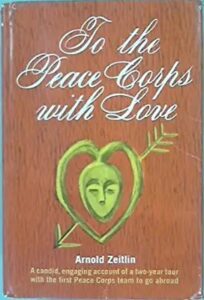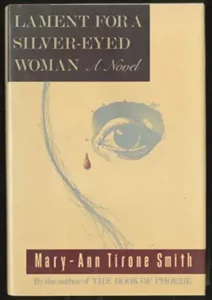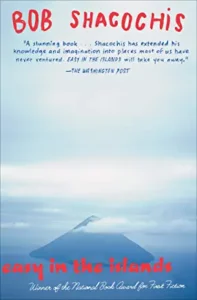Writing from Our Peace Corps Experience
 The first book to draw on the Peace Corps experience was written by Arnold Zeitlin (Ghana 1961), who had volunteered for the Peace Corps in 1961 after having been an Associated Press reporter. That book, To the Peace Corps, With Love (1965), detailed a year of Zeitlin’s life in Ghana as a PCV.
The first book to draw on the Peace Corps experience was written by Arnold Zeitlin (Ghana 1961), who had volunteered for the Peace Corps in 1961 after having been an Associated Press reporter. That book, To the Peace Corps, With Love (1965), detailed a year of Zeitlin’s life in Ghana as a PCV.
Two years later, in 1967, Simon & Schuster published An African Season, by Leonard Levitt (Tanzania 1963-65), another journalist. This memoir covers Levitt’s first year (1964) of living and teaching in a rural upper-primary school in Tanzania.
In 1969, Moritz Thomsen (Ecuador 1965-67) published what is considered by many to be the classic Peace Corps memoir: Living Poor: A Peace Corps Chronicle. Thomsen, who had a farm in the state of California, became a Peace Corps farmer in Ecuador at the age of 44, and lived out his life in that country.
Paul Theroux served in Malawi from 1963 to 1965 and used his Peace Corps material in three of his novels: Girls At Play (1969), My Secret History (1984) and My Other Life (1996).
Michael Tidwell’s (Zaire 1985-87) 1990 The Ponds of Kalambayi: An African Sojournis a passionate and resonant recounting of the author’s tour as a fish extension worker in Zaire; Sara Erdman’s (Cote d’Ivoire 1998-2000) Nine Hills to Nambonkaha tells the story of a young woman coming of age in Cote d’Ivoire and was published in 2001; Peter Hessler (China 1996-98) published River Town: Two Years on the Yangtze, in 2000, and then went on to write two other books based on his time living in China. Recently, Matthew Davis, who served in (Mongolia 2000-02), published When Things Get Dark: A Mongolina Winter’s Tale.
Novels Inspired by the Peace Corps Experience
 The first published “Peace Corps novel” was Lament for a Silver-Eyed Woman, by Mary-Ann Tirone Smith (Cameroon 1965-67). It was published in 1988. Smith’s novel was followed in 1991 by Richard Wiley’s (Korea 1967-69) Festival for Three Thousand Maidens, a novel that Wiley built around his experience serving in the Peace Corps in Korea. Leaving Losapas by Roland Merullo (Micronesia 1979-80), also published in 1991, was based on his tour in Micronesia. Marnie Mueller’s (Ecuador 1963-65) novel, Green Fires: Assault on Eden, A Novel of the Ecuadorian Rain Forest was a 1994 novel about a PCV who returns to her host country, Ecuador, with her new husband.
The first published “Peace Corps novel” was Lament for a Silver-Eyed Woman, by Mary-Ann Tirone Smith (Cameroon 1965-67). It was published in 1988. Smith’s novel was followed in 1991 by Richard Wiley’s (Korea 1967-69) Festival for Three Thousand Maidens, a novel that Wiley built around his experience serving in the Peace Corps in Korea. Leaving Losapas by Roland Merullo (Micronesia 1979-80), also published in 1991, was based on his tour in Micronesia. Marnie Mueller’s (Ecuador 1963-65) novel, Green Fires: Assault on Eden, A Novel of the Ecuadorian Rain Forest was a 1994 novel about a PCV who returns to her host country, Ecuador, with her new husband.
Using their experiences of foreign countries and cultures as the raw material for their fiction and non-fiction, these ‘Peace Corps Writers’ and their writing – by token of the subjects and themes and sensibilities present – show what a profound influence their two years of service had on how they wrote and what they wrote.
Paul Theroux (Malawi 1963-65), in his Introduction to Sunrise With Seamonsters: Travels & Discoveries 1964-1984, recounts how he found his creative material while volunteering in Africa. He describes the moment when he realized he had a motherlode of material thanks to the Peace Corps.
 “I remember a particular day in Mozambique,” Theroux wrote, “in a terrible little country town, getting a haircut from a Portuguese barber. He had come to the African bush from rural Portugal to be a barber . . .. This barber did not speak English, I did not speak Portuguese, yet when I addressed his African servant in Chinyanja, his own language, the Portuguese man said in Portuguese, ‘Ask the bwana what his Africans are like.’ And that was how we held a conversation – the barber spoke Portuguese to the African, who translated it into Chinyanja for me; and I replied in Chinyanja, which the African kept translating into Portuguese for the barber. The barber kept saying – and the African kept translating – things like, ‘I can’t stand the blacks – they’re so stupid and bad-tempered. But there’s no work for me in Portugal.’ It was grotesque, it was outrageous, it was the shabbiest, darkest kind of imperialism. I could not believe my good luck. In many parts of Africa in the early 1960s it was the nineteenth century, and I was filled with the urgency to write about it.”
“I remember a particular day in Mozambique,” Theroux wrote, “in a terrible little country town, getting a haircut from a Portuguese barber. He had come to the African bush from rural Portugal to be a barber . . .. This barber did not speak English, I did not speak Portuguese, yet when I addressed his African servant in Chinyanja, his own language, the Portuguese man said in Portuguese, ‘Ask the bwana what his Africans are like.’ And that was how we held a conversation – the barber spoke Portuguese to the African, who translated it into Chinyanja for me; and I replied in Chinyanja, which the African kept translating into Portuguese for the barber. The barber kept saying – and the African kept translating – things like, ‘I can’t stand the blacks – they’re so stupid and bad-tempered. But there’s no work for me in Portugal.’ It was grotesque, it was outrageous, it was the shabbiest, darkest kind of imperialism. I could not believe my good luck. In many parts of Africa in the early 1960s it was the nineteenth century, and I was filled with the urgency to write about it.”
Richard Wiley recalls from his time in Korea: “As I started to learn Korean I began to see that language skewed actual reality around, and as I got better at it I began to understand that it was possible to see everything differently. Reality is a product of language and culture, that’s what I learned.”
The late novelist Maria Thomas (Ethiopia 1971-73) said of life in Ethiopia, “it was a great period of discovery. There was the discovery of an ancient world, an ancient culture, in which culture is so deep in people that it becomes a richness.”
Poet Margaret Szumowski (Zaire 1973-74 & Ethiopia 197475), puts it this way:
“The visual shock and splendor of Africa is enough to keep the poet writing for the rest of her life – take as an example, the baobab. I’d never seen such a strange and magnificent tree, one that blooms at night, harbors night creatures such as lemurs, and provides food for humans from its fuzzy pods. I’d never seen donkeys in the streets laden with their loads, or a woman dancing around our house, rags tied to her feet as she cleaned the floor as in Addis Ababa. I’d never seen soldiers with their guns pointed at us, as I did in Uganda. All of these experiences gave me enough to think about and absorb for the rest of my life. ”
But it is the gift of language that these poets find most useful and beneficial. Poet Ann Neelon (Senegal 1978-79) learned a great deal from her experience in Senegal. Yet she is able to sum it up in one word: “foreignness.” She wrote in an essay for the newsletter Peace Corps Writers:
“Foreignness is important to a poet because it teaches humility. Humility is important because without it there is no mystical experience. In Senegal, I gained many things useful to a poet. These included hours of direct exposure to the oral tradition via West African griots, caches of exquisite bush and desert images, and French and Wolof syllables, but none of these can compare with the opportunity to have Africa erase who I was. Only after losing myself could I find myself as a writer.”
John Givens (Korea 1967-69), author of three novels published in the 1980s, says that the Peace Corps “suggested that experience was not limited to the mores and expectations of central California where I grew up. The ‘wideness’ of the world came home to me vividly in Korea, and I’ve been exploring the world ever since.”
Novelist and short story writer Eileen Drew (Zaire 1979-81) makes the point that writers with Peace Corps experience “bring the outsider’s perspective, which we’ve learned overseas, to bear on the U.S. We are not the only writers to have done this, but because of the nature of our material, it’s something we can’t not do.”
 And finally Bob Shacochis (Eastern Caribbean 1975-76) pinpoints how Peace Corps writers are in step with writers from previous generations:
And finally Bob Shacochis (Eastern Caribbean 1975-76) pinpoints how Peace Corps writers are in step with writers from previous generations:
“We are torchbearers of a vital tradition – that of shedding light in the mythical heart of darkness. We are descendants of Joseph Conrad, Mark Twain, George Orwell, Graham Greene, Somerset Maugham, Ernest Hemingway, and scores of other men and women, expatriates and travel writers and wanderers, who have enriched our domestic literature with the spices of Cathay, who have tried to communicate the ‘exotic’ as a relative, rather than an absolute, quality of humanity.”
What America has gained through the writings of these Volunteers are methods of understanding the parts of the world and the cultures most Americans never see. By writing about the developing world and emerging democracies, Peace Corps Writers have broadened the landscape of American literature, enriching the national cannon with internationally flavored prose and poetry. Peace Corps writers have come of age as literary persons. Peace Corps writers tell the stories of life in the developing world. It is perhaps a small claim to make in the world of literature, but it’s theirs alone to make.
Fittingly, I read this heady piece in Makati, Manila on a sofa perch street side drinking a yogurt shake. The Philippines in all its youthful vigor and good cheer runs contrary to my life in creaky and too often dour inscrutable Japan which however I’m indebted to for giving me a living as a tenured associate professor whose peace corps Gabon experience inspired me to travel Asia widely and mine its material in six books and sundry. I’m 64 When I’m!!! And contemplating retirement here in Philippines next year. In sum, my peace corps experience makes me feel splendidly at home here in this gemmy paradise.
I would love to hear from writers for whom the Peace Corps experience shows up in other guises in the subtext of their work, often without them realizing it, until much later when they look back on those books and say, Oh (!), that’s what informed the trajectory of the narrative, or what helped me understand and write about a culture other than the one generated by my actual Peace Corps experience, or that made me tolerant of the “other,” or, even more critical, etc. As for me, it informed my understanding of my parents’ and Japanese Americans’ experience of our country’s Concentration Camps as I wrote The Climate of the Country, set in the Tule Lake High Security Camp in California, though, again, in ways I hadn’t realized until years later when I re-read my own book.
Marnie: I didn’t find my “voice” until I wrote my PC memoir for my own sons (South of the Frontera). Later many of the same skills, themes and even tone were used in other books, both fiction and non-fiction. My wife likes Jesus Was Arrested in Mexico City and Missed the Wedding and she’s hard to please.